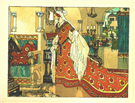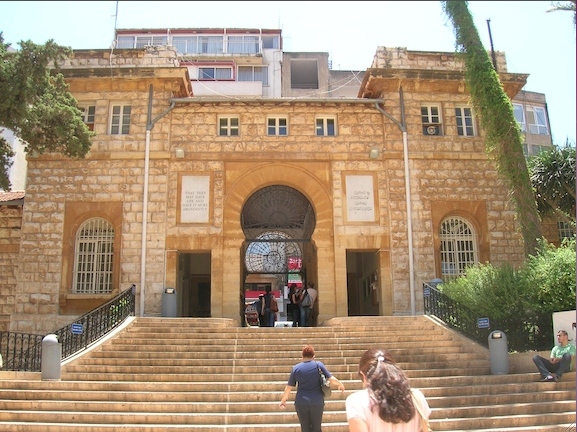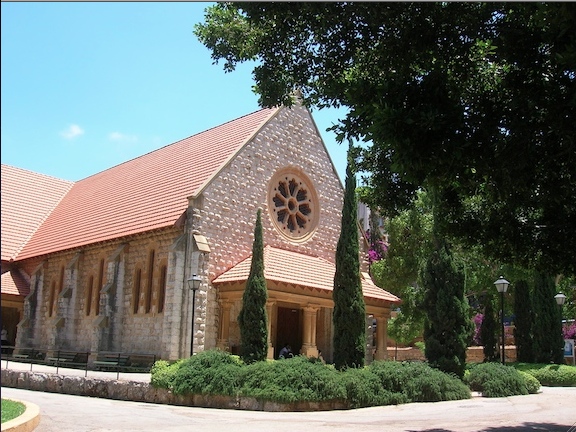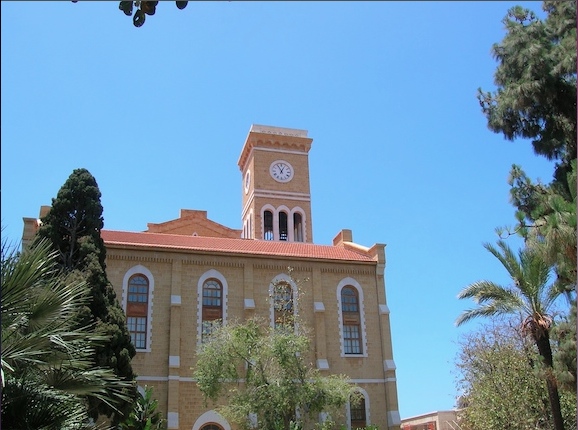Khaled Furani, Silencing the Sea: Secular Rhythms in Palestinian Poetry. Stanford: Stanford University Press, 2012.
Jadaliyya (J): What made you write this book?
Khaled Furani (KF): Growing up in thrall to Israeli policies aimed at diluting and obliterating the Palestine that was, I saw in Arabic poetry “what remains,” to quote from Hannah Arendt’s reminiscences of the Germany she once knew (reverberating in Ghassan Kanafani’s novella and Walid Khalidi’s compendium). In the Arab world, poetry has played the kind of role that perhaps blues and jazz have held in black history in the United States: a record of resilience in rhythms. I wanted to write a book that recognizes how rhythm and language furnish ways of facing defeat and devastation, that recounts resilience in and of poetry, to give poetry its due. I want others to know poetry as a home for struggles to survive (and paying a cost for this survival), as a place to imagine, recover, rebuild, belong, and know (as well as delude) oneself through the material that has always been in human words: sounds.
My disciplinary experience in anthropology also impelled me to write this book. Since I started my graduate training, I have had this lingering sense that anthropological inquiry in the Middle East remains woefully removed from the region’s poetic and literary formations (even though Abu-Lughod’s Writing Women’s Worlds and Caton’s Peaks of Yemen I Summon are by now classic counterexamples). I do not intend to call for diverting attention away from the political nor for granting any autonomy or normative priority to the literary. On the contrary, through this book I seek to depart from Enlightenment assumptions about drawing lines between the aesthetic and the political, the rhetorical, and the ethical, so that a different, non-fragmented re-entry could open up to ethnographic and other inquiries, whether in the Arab world or beyond.
J: What particular topics, issues, and literatures does it address?
KF: This book describes ways in which Arab, mainly Palestinian, poets (writing in literary Arabic) seek to belong and be creative in a secular world. In an important sense, then, this book joins the literature on secularism while departing from its predominant concern with the dramas of nation-states as they draw (or fail to draw) the line between religion and politics. I seek to tell a story about how secularism shapes lives that make distinctions between deep and superficial knowledge, reality and illusion, past and present, slavery and freedom, the creative and the soporific, and, of course, the pious and the aesthetic. This book is also concerned with telling a rare story about Palestine, for rarely does social inquiry listen to the history of a place and its peoples from its poets’ mouths, even though one notable sobriquet for poetry in Arabic is diwan [historical repository].
Poets retain personal and collective memories that linger despite the ruin of time (and occupation). They reveal Palestine as caught in a struggle whereby rhythm and rhyme matter in every way to the politics and ethics one fashions in the world. With what meter do you record a massacre, land confiscation, impoverishment, or expulsion? With what poetic form do you criticize the PNA or the Oslo Accords? The different ways poets raised and grappled with these sorts of questions over the last eight decades is what I follow in this book.
I also grapple with the place of secularism in poets’ pursuits. I learned from my teacher, Talal Asad, to question secularism’s claims to self-sufficiency, as though the life forms it makes possible are all there is or all that is natural and legitimate. Anthropology can be an apt home for nursing skepticism towards certitudes in modern Western reason—for example, the secular announcing its world as real and the religious world it has exiled as illusory or less than real. One irony is that I question secular dismissals of the religious through Plato’s pariahs, namely the poets, whom he thought were the least pious (or most irreligious) and therefore particularly threatening to his republic!
J: Who do you hope will read this book, and what sort of impact would you like it to have?
KF: I hope this book will be read not just by specialists and experts. The words, lives, and struggles of the poets should appeal to anyone able to hear the rhythms that arrive and vanish in the world. In addition, I draw upon disparate fields and question the very lines of expertise supposedly dividing them as they sequester “truth,” which should preclude claims on it by a single specialization.
As for impact, I wish for this book, or rather its story, to provide impetus for generating other and more developed stories about secularism, Islam, the Arab world, and Palestine, with adequate attention (more adequate than I was able to provide) to the salience of language in them all. For example, I remain unsatisfied about the fact that I only scantily address how the secular constitutes itself by drawing distinctions between academic and poetic languages, between “reason” and “imagination.” Another hope is that further attention will be given to aspects of the secular sensorium; for instance, why meter is not simply an individual choice, but a practice conditioned by time and place.
J: Your book has been described as “an ethnography of contemporary Arabic poetry." How does your disciplinary location as an anthropologist affect the way you write about Palestinian poetry?
KF: I can think of two effects that my location as an anthropologist has had on the writing of this book. First, there were moments when it put me in trouble with poets. As an anthropologist I had neither the tools nor the predilection for appraising literary merit or using it as a criterion for inclusion or exclusion of poets in the study. Since the beginning of my fieldwork, I have not believed in the autonomy or ontological priority of the literary. Yet certain poets found this approach disturbing. It upset them to know that “big poets” and “poet-ies,” as one would say in Arabic, are lumped together in one book. A second effect has to do with the substance of writing. There is very little poetry in the book itself, and in fact little theory as well, in a post-Comtean, positivist sense of the word. My primary material of analysis has been stories poets related to me in conversations. As an anthropologist, I sought to limn their life-worlds from their words.
J: What other projects are you working on now?
KF: While I remain interested in studying relations between “the good” and “the beautiful” (or the political and the aesthetic), my interest in the secular has taken me in new directions. Lately, I have been focusing on the formation of anthropology itself as a modern discipline. While Silencing the Sea investigates some ways in which the secular has formed modern Arabic poetic sensibilities, I am now studying how the secular has constituted a particular swath of reason in the modern West, in this case the anthropological. What specifically interests me is the complex of relations anthropology (as an instance of secular intellect) has acquired with theology since the event that Nietzsche diagnosed in the West as the “death of God.” How is that death related to the birth of modern anthropology, to the scientific curiosity about cultural difference, and to the allure of a disciplinary “method” commonly known as ethnographic immersion? In what ways does anthropology’s secular reason—in which difference is culturally constituted—align the discipline with or separate it from the reason of the modern nation-state? These questions are some of those driving this new project.
Excerpt from Silencing the Sea: Secular Rhythms in Palestinian Poetry
From Chapter Eight: Rhythmical Freedom
Before Dahbour evacuated during the war, his family had owned a bakery and a house that he was able to return to for the first time in the early 1990s, after the Oslo Accords. When they lost their home in 1948, Dahbour, his siblings, his parents, and his blind grandmother found themselves in a hut in a refugee camp near Hems, Syria; he describes the camp as not fit for human existence. That is where his struggle to survive and to imagine began. And he keeps returning to that place of imagination with tantalizing pangs of pain; for example, he rebukes his father in his book Here, There:
What has my father feared so that his sins committed the act of a swallow if he only were to say: slaughter my child…but did not leave who knows perhaps I would have become Ishmael or his green bird, or…nothing even nothing has a meaning and eminence in its soil.
Deprived of electricity, family gatherings in the evenings focused on story-telling. Words, that is, sounds still came before images. Dahbour’s parents were good storytellers, he recalls. His father, who eked out a living from washing the dead and reciting the Quran at their burials, asked him to read from a fading yellow book when he was in fourth grade. That book contained the Arabian, pre-Islamic epic Al-Zīr Sālim, telling the exploits of the poet-king Abu Leila al-Muhalhil (died AD 531), who abandoned his early life of chasing women to avenge the killing of his brother. When Dahbour read the poems collected in a written version of the oral epic, he immediately fell in love with the “split texts,” as he describes them. One of these split texts is the specimen by al-Khanasā’ in Chapter Five, which he did not then know was an actual poem. But he knows enough today to evoke it as a text in consonance with the academically oriented literary scene. It is as though the word “text” bestows a kind of seriousness, depth, and legitimacy of belonging to the present intellectualism that earlier names cannot. It is also the name used by what may be the largest remaining public for poets: professional literary critics.
Dahbour’s speech may not have been able to escape the presence of specialists, but its beginnings lay in the intimate universe of his mother. His mother, able and resourceful for her family and neighbors, saved him with her stories about a magical, parallel city called Haifa. “Why do you need to see the wonder box [likely derived from the German wunderkammer]?” she asked him when he could not join Syrian kids to see the wonder box on display at town fairs. She promised him that she would bring him instead the sea on a mule from the Mules’ Court in Haifa. She also told him that there was no need for swings for which he could not pay, not even with bread, which substituted for money among penniless kids on the Eid. She reminded him that the Carmel Mountain in Haifa moves when children mount it. When clothes were torn and shoes split open, she asked him not to care about clothes, for in Haifa clothes were impervious to rain. There, she told him, rain fell only on plants and soil, not on humans. Dahbour recovered his mother’s tales and many more as he sought to account for his childhood entry into the kingdom of poetry. Her stories became the soil that nursed his ability to create, his poiesis.
At the start of his sixties when I met him in the winter of 2002, Dahbour was living and working in the ancient city of modern refugees, Gaza, the inferno of Palestinian existence, where military occupation meets military response, almost the only place where occupation is not normalized, as it overwhelmingly has become elsewhere in Palestine, and where the violence of Palestinian against Palestinian was then surpassing that of the occupation. There he resided with his wife and children, one of them a student in the United States. He had returned to Gaza after studying in Baghdad, after living in Tunisia for some time, and after the Oslo Accords, along with many PNA functionaries. He was working as a director in the Ministry of Education and Culture and writing a Friday column titled “Stone in the Air” for the communist daily al-Ittihad, published in Haifa for seven decades. In this way Haifa has stayed with him and he with her. But it was neither in Haifa nor in Gaza where we met. He was barred from entering Israeli territory and I from entering Gaza, because of my Israeli citizenship. An Israeli military ordinance then prohibited citizens of Israel from entering the enclosed West Bank and Gaza; however, prohibition was more whimsical than systematic or constant.
Dahbour and I met in Cairo during the book fair, where the Egyptian Ministry of Culture officially invited him to read during one of the poetry evenings. The Israelis had allowed him to enter Egypt by land and me by air, but I was not fated to return the same way. After carefully inspecting my laptop, Israeli security personnel at the International Cairo Airport deemed it suspicious and dangerous due to a “technical problem that they could not reveal.” They would not allow me on the aircraft with the laptop, so I returned to Haifa by land the following evening with some of the best conversations I had during my ethnographic fieldwork safely stored on the computer. One of them was with Dahbour. Although I missed his reading event, I was able to interview him for nearly four hours in the cafeteria of the Semiramis Hotel, on the bank of the Nile.
For someone with an upset stomach and worries about his wife and children back in Gaza, Dahbour nonetheless engaged me for hours over coffee and tea with stories about his childhood mentor, the poet Maurice Qabaq, and the poetic ability he nurtured in him. Dahbour said that Qabaq was his “guardian angel,” who taught him poetry as well as “the art of life through giving and tolerance.” Qabaq also taught Dahbour that it is “not necessary to be noisy and exhibit oratory because the modern poem is read with the eye.” Qabaq thus initiated him into the secular intellect of modernity that distances itself from the acoustic in searching for truths. The ear, which brings noise, becomes inferior to the eye, which takes you to depth. The deferral that comes with sound loses out to the immediacy of vision. The eye has proven to be of greater service than the ear to reveal a form of eternity (embedded in modernity), which is neither deferred to a future point nor recovered from a certain past, but is believed to be lived.
Dahbour also learned that the modern poem is read as a whole text, not as discrete lines. When image dethrones sound, figurative representation rules. When sonic repetition retreats in the world of poetry, so does memory. Without repetition much is bound to be either misrecognized or altogether forgotten. Because of this modern conception of reading a poem, according to Dahbour, Qabaq once found himself in scandalous trouble with the salafi (past-ist) culture in town when ecclesiastical authorities in the Syrian church misread his poem “Love and Theology.” His lines “The Son, the Holy Spirit, and the Father, three in One Phantom / if we do not praise the Lord¨ marked him as a heretic. The iconoclast Qabaq helped Dahbour do what Hijazi of Egypt did before him: leave romantic and classicist verse for an unhierarchical “modern” and “liberated” poetry:
I am undeniably indebted to tafʿīla, that is, modern poetry, to Maurice Qabaq, who noticed that this child, who may be talented, is afraid of tafʿīla because he was pulled by the turāth [tradition]. He noted that the prose poem is not worth a shilling. He taught me that with tafʿīla poetry you could write it and keep it metered. Tafʿīla was then the revolution in the 1960s, it was the future, tafʿīla was like an earthquake. Today you don’t see that in prose poetry, which is considered the third road. Khalil Khoury and Maurice Qabaq, who are among the best poets of Syria, were deliberately flunked in the university because they wrote tafʿīla. On the radio, it was forbidden to broadcast modern poetry of tafʿīla. Even many modern poets wrote poems about modern poetry….Choosing the modern form is choosing the modernity of life. It was enough for me to know that this form has its rules and that it is difficult and challenging. Beware: tafʿīla is the difficult one, not al-ʿāmūdī. With al-ʿāmūdī once you figure the meters you walk the lane. With tafʿīla you have to know when to put two feet, four feet, or ten feet on the line, when to absent the rhyme and when to reveal it. This challenge, this search for new forms that are not pre-made leads to a heated debate….I discovered that the word`s meaning is not literal. I felt that I live in open air.
Dahbour’s account demonstrates ways in which the politics of the establishment (the nation-state) and the politics of dissent (modern poets) collide in the battle over possessing the literary field. The nation-state as a modern creature feels threatened by the conception of free verse and conspires with tradition to abort its birth. The sovereign state recruits tradition in combating renovation and revolution, without either side ever fully recognizing how entangled with each other they are. They all seem to suffer from the misrecognition wrought by a sense of self-sovereignty, whether belonging to states, their dissenting subjects, or their sense of time.
[Excerpted from Khaled Furani, Silencing the Sea: Secular Rhythms in Palestinian Poetry, pages 137-140, by permission of the author. © 2012 by the Board of Trustees of the Leland Stanford Junior University. For more information, or to order the book, click here.]
![[Cover of Khaled Furani, \"Silencing the Sea: Secular Rhythms in Palestinian Poetry\"]](https://kms.jadaliyya.com/Images/357x383xo/Furani.jpg)
















